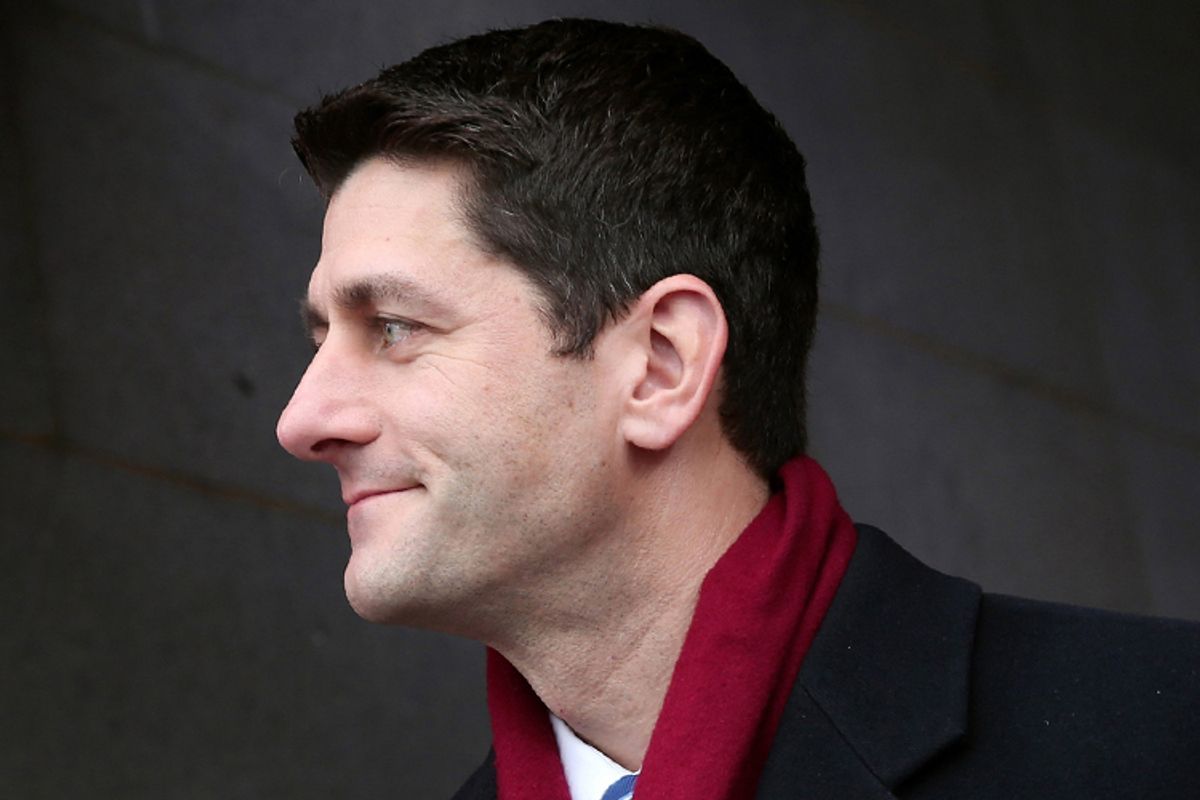Zipping across the land with a nice internet connection, so a good time to reflect a bit (looking down on clouds from above broadens the perspective a bit, I find).
So, I’m doing a radio interview last night, and moderately impressed with myself for being able to speak coherently about four different budgets: Ryan’s, Senate’s, POTUS (not out yet, but we can guess at the mix), and the CPC. Then I got asked a question which threw me a bit: why are Paul Ryan and his budget taken so seriously?
It wasn’t a snarky question. It’s just that I’d been discussing the absolute non-reality of his proposal—how the numbers don’t begin to add up, the unrealistic budget cuts, the plethora of magic asterisks in the absence of actual proposals (the most egregious of which is: I’ll cuts taxes by $6-7 trillion over the next decade and offset the revenue losses with…um…sorry, gotta run). And the interviewer was like, “OK…but if you’re right, why is his budget front page news such that he’s driving the debate?”
Here’s what I think is going on. First, institutional reasons. His party holds the majority and he’s the chair of the House Budget Committee. That in itself makes his budget newsworthy. Also, as a former VP candidate, he’s a national figure.
But that’s not the main reason.
I asked a wise, intently non-partisan friend who thought, and he admitted he was being generous, that one reason might be that Ryan’s introduced an important theme into the discussion: if you want really low taxes, you’ve got to give up Medicare as we know it.
But while that may be in there somewhere, it’s awfully muddled. It certainly wasn’t Ryan’s position in the election, where he and Mitt attacked the President for Medicare cuts. And his voucher program doesn’t start for ten years.
In other words, I think my friend is being too generous. I’ve argued that we actually need our politicians to articulate this point: if we want X, we’re going to have to pay for X. To my ears, Paul Ryan actually fits squarely in the problematic camp on this point, telling folks they can painlessly have it all. But in his version, it takes the form of trickle down: if we cut taxes on job creators, get rid of the safety net, and inject health care delivery with competition, then we can have it all for a fraction of what we’re paying now.
That’s very different that telling the electorate straight up that if we want what we say we want—social insurance, a strong safety net, productive public goods including education—we’re going to need to raise more revenues to pay for it.
So what is the answer? I think it’s twofold.
First, his views, positions, and rhetoric mesh very neatly with those of influential people, and those people have helped convince the media that Ryan is saying important things. One group of those people are, of course, the fix-the-debt-shrink-the-government-fell-the-pain coalition. Neither the numbers (the actual fiscal record or trajectory) nor the economics support their views, but they’ve been extremely effective in driving the debate.
The other group—and yes, there’s tons of overlap—are those who benefit most from tax reductions on the wealthy, and remember, many of these folks are professional investors. When they invest in Congress, they expect a big bang for their big bucks.
All pretty depressing so far, I know. But the second part of the answer is hopeful, and comes from the hoary old adage that you really can’t fool all the people all the time.
This may well be premature, but I believe Ryan’s popularity—his rep as someone who mustn’t be ignored—is fading and that this most recent budget will play a significant role in his decline.
My first clue was an interview he did with Larry Kudlow this week, and Larry’s on his side, especially on the supply-side stuff. But the tone of the interview was revealing, I thought. Kudlow expressed skepticism and disbelief that Ryan would be able to repeal Obamacare and thus didn’t think the budget stood up to even cursory scrutiny. And Ryan basically agreed! He spoke of his budget as symbolic and visionary, or some such stuff—I don’t remember the word salad. But he kind of just said he’s holding up a picture of one way of looking at things, a way that he and his caucus think makes sense.
But I think they’re increasingly isolated in this regard—certainly, the election outcome suggests that to be the case—and eventually, this will move the media away from him, especially as the fiscal numbers continue to move down to more normal levels. I could easily be wrong, of course, but I think that at the end of the day—and it’s getting toward dusk—enough people will no longer want to look at that picture he’s holding up, and as far as I can tell, he doesn’t have any other ones to show us.



Shares